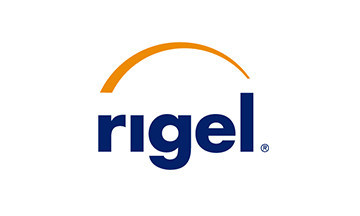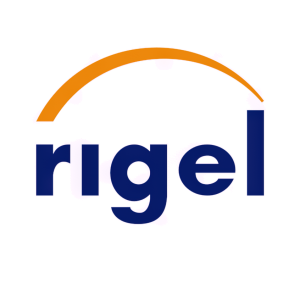Rigel Awarded $16.5 Million from U.S. Department of Defense for Phase 3 Clinical Trial of Fostamatinib in COVID-19 Patients
Rigel Pharmaceuticals has received $16.5 million from the U.S. Department of Defense to support a Phase 3 clinical trial for fostamatinib in hospitalized COVID-19 patients. This funding is aimed at evaluating the drug's safety and efficacy, following data from a Phase 2 trial expected in April 2021. The trial will enroll over 300 patients and could lead to an Emergency Use Authorization for this treatment. Fostamatinib is already approved for chronic immune thrombocytopenia, indicating a repurposing of an existing drug to expedite treatment options for COVID-19.
- Secured $16.5 million funding from the U.S. Department of Defense, enhancing financial stability for ongoing research.
- Ongoing Phase 3 trial could lead to Emergency Use Authorization, increasing market potential for fostamatinib.
- Clinical trials could face delays due to the ongoing COVID-19 pandemic, impacting the timeline for positive results.
- Results from the NIH-sponsored Phase 2 trial are still pending, creating uncertainty for the efficacy of fostamatinib in COVID-19 treatment.
Insights
Analyzing...
SOUTH SAN FRANCISCO, Calif., Jan. 29, 2021 /PRNewswire/ -- Rigel Pharmaceuticals, Inc. (Nasdaq: RIGL) today announced it has been awarded
"We are grateful to receive this funding from the DOD and for their demonstrated commitment towards finding safe and effective treatments for COVID-19 patients," said Raul Rodriguez, Rigel's president and CEO. "These additional resources will contribute significantly to the advancement of our Phase 3 trial. Data from this trial, coupled with findings from the NIH-sponsored Phase 2 trial, which is anticipated to report topline results in April 2021, could potentially facilitate an EUA filing for a much needed therapy for hospitalized COVID-19 patients in the U.S."
"The DOD is pleased to support this effort, since repurposing an existing FDA-approved drug product for potential application as a COVID-19 treatment saves time and cost, enabling a much more rapid response to the pandemic," said Dr. Jason Roos, the Joint Program Executive Officer for Chemical, Biological, Radiological and Nuclear Defense. "This investment should speed up identification of safe and effective treatments for this formidable pandemic."
The Phase 3 clinical trial will evaluate the safety and efficacy of fostamatinib in hospitalized COVID-19 patients without respiratory failure that have certain high-risk prognostic factors. This multi-center, double-blind, placebo-controlled, adaptive design study is expected to enroll over 300 evaluable patients that will be randomly assigned to either fostamatinib plus standard of care (SOC) or matched placebo plus SOC (1:1). Treatment will be administered orally twice daily for 14 days. There will be a follow-up period to day 60. The primary endpoint of this study is the proportion of subjects who progress to severe/critical disease within 29 days.
About COVID-19 & SYK Inhibition
COVID-19 is the infectious disease caused by Severe Acute Respiratory Syndrome Coronavirus-2 (SARS-CoV-2). SARS-CoV-2 primarily infects the upper and lower respiratory tract and can lead to acute respiratory distress syndrome (ARDS). Additionally, some patients develop other organ dysfunction including myocardial injury, acute kidney injury, shock resulting in endothelial dysfunction and subsequently micro and macrovascular thrombosis.1 Much of the underlying pathology of SARS-CoV-2 is thought to be secondary to a hyperinflammatory immune response associated with increased risk of thrombosis.2
SYK is involved in the intracellular signaling pathways of many different immune cells. Therefore, SYK inhibition may improve outcomes in patients with COVID-19 via inhibition of key Fc gamma receptor (FcγR) and c-type lectin receptor (CLR) mediated drivers of pathology, such as inflammatory cytokine release by monocytes and macrophages, production of neutrophil extracellular traps (NETs) by neutrophils, and platelet aggregation.3,4,5 Furthermore, SYK inhibition in neutrophils and platelets may lead to decreased thromboinflammation, alleviating organ dysfunction in critically ill patients with COVID-19.
About TAVALISSE
Indication
TAVALISSE® (fostamatinib disodium hexahydrate) tablets is indicated for the treatment of thrombocytopenia in adult patients with chronic immune thrombocytopenia (ITP) who have had an insufficient response to a previous treatment.
Important Safety Information
Warnings and Precautions
- Hypertension can occur with TAVALISSE treatment. Patients with pre-existing hypertension may be more susceptible to the hypertensive effects. Monitor blood pressure every 2 weeks until stable, then monthly, and adjust or initiate antihypertensive therapy for blood pressure control maintenance during therapy. If increased blood pressure persists, TAVALISSE interruption, reduction, or discontinuation may be required.
- Elevated liver function tests (LFTs), mainly ALT and AST, can occur with TAVALISSE. Monitor LFTs monthly during treatment. If ALT or AST increase to >3 x upper limit of normal, manage hepatotoxicity using TAVALISSE interruption, reduction, or discontinuation.
- Diarrhea occurred in
31% of patients and severe diarrhea occurred in1% of patients treated with TAVALISSE. Monitor patients for the development of diarrhea and manage using supportive care measures early after the onset of symptoms. If diarrhea becomes severe (≥Grade 3), interrupt, reduce dose or discontinue TAVALISSE. - Neutropenia occurred in
6% of patients treated with TAVALISSE; febrile neutropenia occurred in1% of patients. Monitor the ANC monthly and for infection during treatment. Manage toxicity with TAVALISSE interruption, reduction, or discontinuation. - TAVALISSE can cause fetal harm when administered to pregnant women. Advise pregnant women the potential risk to a fetus. Advise females of reproductive potential to use effective contraception during treatment and for at least 1 month after the last dose. Verify pregnancy status prior to initiating TAVALISSE. It is unknown if TAVALISSE or its metabolite is present in human milk. Because of the potential for serious adverse reactions in a breastfed child, advise a lactating woman not to breastfeed during TAVALISSE treatment and for at least 1 month after the last dose.
Drug Interactions
- Concomitant use of TAVALISSE with strong CYP3A4 inhibitors increases exposure to the major active metabolite of TAVALISSE (R406), which may increase the risk of adverse reactions. Monitor for toxicities that may require a reduction in TAVALISSE dose.
- It is not recommended to use TAVALISSE with strong CYP3A4 inducers, as concomitant use reduces exposure to R406.
- Concomitant use of TAVALISSE may increase concentrations of some CYP3A4 substrate drugs and may require a dose reduction of the CYP3A4 substrate drug.
- Concomitant use of TAVALISSE may increase concentrations of BCRP substrate drugs (eg, rosuvastatin) and P-Glycoprotein (P-gp) substrate drugs (eg, digoxin), which may require a dose reduction of the BCRP and P-gp substrate drug.
Adverse Reactions
- Serious adverse drug reactions in the ITP double-blind studies were febrile neutropenia, diarrhea, pneumonia, and hypertensive crisis, which occurred in
1% of TAVALISSE patients. In addition, severe adverse reactions occurred including dyspnea and hypertension (both2% ), neutropenia, arthralgia, chest pain, diarrhea, dizziness, nephrolithiasis, pain in extremity, toothache, syncope, and hypoxia (all1% ). - Common adverse reactions (≥
5% and more common than placebo) from FIT-1 and FIT-2 included: diarrhea, hypertension, nausea, dizziness, ALT and AST increased, respiratory infection, rash, abdominal pain, fatigue, chest pain, and neutropenia.
Please see www.TAVALISSE.com for full Prescribing Information.
To report side effects of prescription drugs to the FDA, visit www.fda.gov/medwatch or call 1-800-FDA-1088 (800-332-1088).
TAVALISSE and TAVLESSE are registered trademarks of Rigel Pharmaceuticals, Inc.
About Rigel (www.rigel.com)
Rigel Pharmaceuticals, Inc., is a biotechnology company dedicated to discovering, developing and providing novel small molecule drugs that significantly improve the lives of patients with hematologic disorders, cancer and rare immune diseases. Rigel's pioneering research focuses on signaling pathways that are critical to disease mechanisms. The company's first FDA approved product is TAVALISSE® (fostamatinib disodium hexahydrate) tablets, the only oral spleen tyrosine kinase (SYK) inhibitor, for the treatment of adult patients with chronic immune thrombocytopenia who have had an insufficient response to a previous treatment. The product is also commercially available in Europe (TAVLESSE) and Canada (TAVALISSE) for the treatment of chronic immune thrombocytopenia in adult patients.
Fostamatinib6 is currently being studied in a Phase 3 trial for the treatment of warm autoimmune hemolytic anemia (wAIHA); an NIH/NHLBI-sponsored Phase 2 trial for the treatment of hospitalized COVID-19 patients, in collaboration with Inova Health System; and a Phase 2 trial for the treatment of COVID-19 being conducted by Imperial College London. Additionally, has Rigel launched a Phase 3 clinical trial of fostamatinib for the treatment of hospitalized COVID-19 patients.
Rigel's other clinical programs include an ongoing Phase 1 study of R8356, a proprietary molecule from its interleukin receptor-associated kinase (IRAK) inhibitor program, and a recently completed Phase 1 study of R5526, a proprietary molecule from its receptor-interacting serine/threonine-protein kinase (RIPK) inhibitor program. In addition, Rigel has product candidates in clinical development with partners AstraZeneca, BerGenBio ASA, and Daiichi Sankyo.
1. Berlin DA, Gulick RM, Martinez FJ. Severe Covid-19. N Engl J Med 2020
2. Becker RC. COVID-19 Update: COVID-19 associated coagulopathy. Journal of Thrombosis and Thrombolysis May 15, 2020. DOI: https://doi.org/10.1007/s11239-020-02134-3
3. Hoepel W. et al. Anti-SARS-CoV-2 IgG from severely ill COVID-19 patients promotes macrophage hyper-inflammatory responses. bioRxiv July 13, 2020. DOI: https://doi.org/10.1101/2020.07.13.190140
4. Sung P-S and Hsieh S-L (2019) CLEC2 and CLEC5A: Pathogenic Host Factors in Acute Viral Infections. Front. Immunol. 10:2867. DOI: https://doi.org/10.3389/fimmu.2019.02867
5. Behnen M. Immobilized Immune Complexes Induce Neutrophil Extracellular Trap Release by Human Neutrophil Granulocytes via Fcγ RIIIB and Mac-1. The Journal of Immunology July 2014. DOI: https://doi.org/10.4049/jimmunol.1400478
6. The product for this use or indication is investigational and has not been proven safe or effective by any regulatory authority.
Forward Looking Statements
This release contains forward-looking statements relating to, among other things, Rigel's ability to receive payments under the DoD agreement, expected timing of the results of the NIH-sponsored Phase 2 trial and the potential for Rigel's Phase 3 study to facilitate a filing for an EUA. Any statements contained in this press release that are not statements of historical fact may be deemed to be forward-looking statements. Words such as "potential," "may," "expects" and similar expressions are intended to identify these forward-looking statements. These forward-looking statements are based on Rigel's current expectations and inherently involve significant risks and uncertainties. Actual results and the timing of events could differ materially from those anticipated in such forward looking statements as a result of these risks and uncertainties, which include, without limitation, risks and uncertainties associated with the commercialization and marketing of TAVALISSE; risks that the FDA, EMA or other regulatory authorities may make adverse decisions regarding fostamatinib; risks that TAVALISSE clinical trials may not be predictive of real-world results or of results in subsequent clinical trials; risks that TAVALISSE may have unintended side effects, adverse reactions or incidents of misuses; the availability of resources to develop Rigel's product candidates; market competition; as well as other risks detailed from time to time in Rigel's reports filed with the Securities and Exchange Commission, including its Annual Report on Form 10-K for the year ended December 31, 2019 and Quarterly Report on Form 10-Q for the quarter ended September 30, 2020. In addition, the COVID-19 pandemic may result in further delays in Rigel's studies, trials and sales, or impact Rigel's ability to obtain supply of TAVALISSE. Rigel does not undertake any obligation to update forward-looking statements and expressly disclaims any obligation or undertaking to release publicly any updates or revisions to any forward-looking statements contained herein.
Rigel Investor Contact:
Phone: 650.624.1232
Email: ir@rigel.com
Rigel Media Contact:
Phone: 315-409-9783
Email: heather.swift@syneoshealth.com
![]() View original content to download multimedia:http://www.prnewswire.com/news-releases/rigel-awarded-16-5-million-from-us-department-of-defense-for-phase-3-clinical-trial-of-fostamatinib-in-covid-19-patients-301218290.html
View original content to download multimedia:http://www.prnewswire.com/news-releases/rigel-awarded-16-5-million-from-us-department-of-defense-for-phase-3-clinical-trial-of-fostamatinib-in-covid-19-patients-301218290.html
SOURCE Rigel Pharmaceuticals, Inc.








